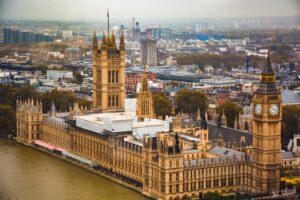
Connect
An update from our Parlimentary Advisors
A busy day of parliamentary activity last week (12th February), as outlined below:
The House of Commons has held a Westminster Hall debate on fuel poverty in England. The following MPs raised concerns about the struggles that pensioners were facing to heat their homes this winter.
- Jon Trickett (Lab, Normanton and Hemsworth)
- Steve Yemm (Lab, Mansfield)
- Brian Mathew (LD, Melksham and Devizes)
- Neil Duncan-Jordan (Lab, Poole)
- Robbie Moore (Con, Keighley and Ilkley)
- Jim Shannon (DUP, Strangford)
- Ian Lavery (Lab, Blyth and Ashington)
- Richard Burgon (Lab, Leeds East)
- Liz Jarvis (LD, Eastleigh)
- Nick Timothy (Con, West Suffolk)
—-
The House also held a Westminster Hall debate on support for pensioners, led by Blake Stephenson (Con, Mid Bedfordshire), who was highly critical of the decision to strip millions of pensioners of their winter fuel payment, and accused the Government of letting these pensioners down. He also argued that the Household Support Fund had not been designed with pensioners in mind, with Age UK estimating that typically, £1 in every £10 the household support fund pays out goes to pensioners.
Stephenson added that Labour manifesto promise to reduce the energy bills of pensioners was not being followed through, and that GB Energy and Warm Homes Grants were ineffective in practice.
Please see further key contributions below:
Robbie Moore (Con, Keighley and Ilkley)
- Many of the 64,000 pensioners across the Bradford district who will be impacted by the winter fuel allowance will also have a 10% increase in their council tax as a result of our local Labour-run administration.
Seamus Logan (SNP, Aberdeenshire North and Moray East)
- Ministers point to the uptake in pension credit as some sort of mitigation for the cut in the winter fuel payment, but it seems ridiculous that the cut was not delayed to allow for a longer uptake campaign.
- In contrast to the UK Government, the Scottish SNP Government will provide universal support through the introduction of the pension-age winter heating payments next year, which will ensure a payment for every pensioner household in the winter of 2025-26.
- Other policy decisions are hurting pensioners. For example, the employer’s national insurance contribution charges are leading to reduced third-sector service provision.
Wendy Morton (Con, Aldridge-Brownhills)
- We rightly talk a lot about the people who are eligible, but there is also a big group of pensioners who are just over the pension credit threshold. They are the ones who are really hurting because they qualify for nothing.
Jim Shannon (DUP, Strangford)
- Poverty among older people is the highest it has been since the 2008 recession. Northern Ireland, where oil instead of gas is more often used to warm houses, has seen sharp price rises.
- Data shows that close to one in five households over over-60s are now in such severe fuel poverty that their homes are being kept in a condition that “endangers the health” of the inhabitants.
Steve Barclay (Con, North East Cambridgeshire)
- There is a debate to be had about universal benefits and targeted benefits, but the speed with which it was done meant that some of the targeting, such as for pension credit, was not addressed.
Gregory Stafford (Con, Farnham and Bordon)
- Currently, our pensioners are having to make difficult choices, as other hon. Members have said, including opting to stay at home to ensure that they are not taken ill by the cold weather, or indeed choosing not to eat at all for days.
- As someone who spent their career prior to becoming a Member of Parliament working in the healthcare system—including, latterly, in NHS England—I am hugely concerned about the pressure that withdrawing the winter fuel payment is putting on our NHS.
Clive Jones (LD, Wokingham)
- Whether under the Conservatives or Labour, Britain’s pensioners have been a political football for successive Governments to mistreat, kick around and turn their back on. That has been the case from the winter fuel allowance under this Government to the betrayal on the triple lock by the previous Government and the failure to compensate WASPI women by both the Conservatives and Labour.
Rebecca Smith (Con, South West Devon)
- What has really been highlighted this afternoon is Labour’s broken promises, particularly to pensioners.
- Labour has come to power against the backdrop of a Conservative record of improving dignity in people’s retirement. We protected the triple lock; uprated the state pension by £3,700; drove up pension credit applications earlier in our time in office; and abolished the pension lifetime tax allowance.
The Parliamentary Under-Secretary of State for Work and Pensions, Torsten Bell
- Recent years have been difficult for pensioners. They, along with the rest of Britain, have had to wrestle with a cost of living crisis, inflation in double digits for the first time in four decades, food prices rising even faster, and energy bills that have shot up.
- Even though today the UK has a lower rate of relative poverty among pensioners than the OECD average, the fact remains that, as Members have said, pensioner poverty is still too high.
- Although we can no longer justify paying winter fuel payments to all pensioners, it is, as all Members have said, important that we do more to make sure pensioners receive the support they are entitled to.
- We are undertaking a comprehensive pensions review to ensure that the pensions system is fit for the future, building on the success of auto-enrolment.
- Supporting pensioners in the 2020s is about more than opposing every tough choice that the Government have to make. It means directly raising pensioner incomes via the state pension and pension credit, but it also requires us to reform our private pension system and grow our economy.
—-
The following written questions of interest have also been answered:
Neil Duncan-Jordan (Lab, Poole): To ask the Secretary of State for Work and Pensions, whether the pension review will consider adequacy.
Torsten Bell (Lab, Swansea West) responded: This government is committed to enabling tomorrow’s pensioners to have security in retirement– which is why we announced the landmark Pensions Review days after coming into office in July. The first phase is focussed on boosting investment and economic growth and we are committed to a second phase that will include retirement adequacy within its considerations. We will provide further detail on the full scope and timetable for the second phase in due course.
Blake Stephenson (Con, Mid Bedfordshire): To ask the Secretary of State for Work and Pensions, if she will make an assessment of the potential impact of changes to the winter fuel payment on recent trends in the level of economic growth.
Torsten Bell (Lab, Swansea West) responded: It is not possible to attribute changes in consumer spending or economic growth to any changes to Winter Fuel Payments. It is not possible to disentangle these from other much larger factors that could affect economic growth or consumption.
Blake Stephenson (Con, Mid Bedfordshire): To ask the Secretary of State for Work and Pensions, if she will make an estimate of the proportion of Winter Fuel Payments that were spent through (a) direct and (b) indirect taxation in 2023-24.
Torsten Bell (Lab, Swansea West) responded: The department does not hold information on how Winter Fuel Payments were spent in 2023–24.
Martin Wrigley (LD, Newton Abbot): To ask the Secretary of State for Work and Pensions, what steps she is taking to tackle (a) age discrimination and (b) ageism in the workplace.
Alison McGovern (Lab, Birkenhead) responded: The Government recognises the need to recruit on merit, irrespective of a persons’ age. The 2010 Equality Act provides strong protection against direct and indirect age discrimination in employment, rendering it unlawful for employers to discriminate against employees or job applicants based on age. The Government acknowledges the key role employers play in helping older individuals to remain in or re-enter the workforce, and the importance of embracing policies conducive to this support. Age diversity within the workforce brings numerous benefits to businesses, in addition to broader advantages such as fresh perspectives and knowledge-sharing.
Martin Wrigley (LD, Newton Abbot): To ask the Secretary of State for Work and Pensions, what steps she plans to take to support (a) the right to work and (b) financial security for older people.
Alison McGovern (Lab, Birkenhead) responded: On 26 November 2024, the Government published the Get Britain Working White Paper which sets out fundamental reforms to employment support to help people into good work and create an inclusive labour market in which everyone can get into and on at work.
Increasing the proportion of older people returning to work and staying in work reduces the risk of later life poverty as it increases pensions saving and improves physical and mental wellbeing. On an individual scale it ensures people can fulfil their potential into later life and save towards a financially resilient retirement.









